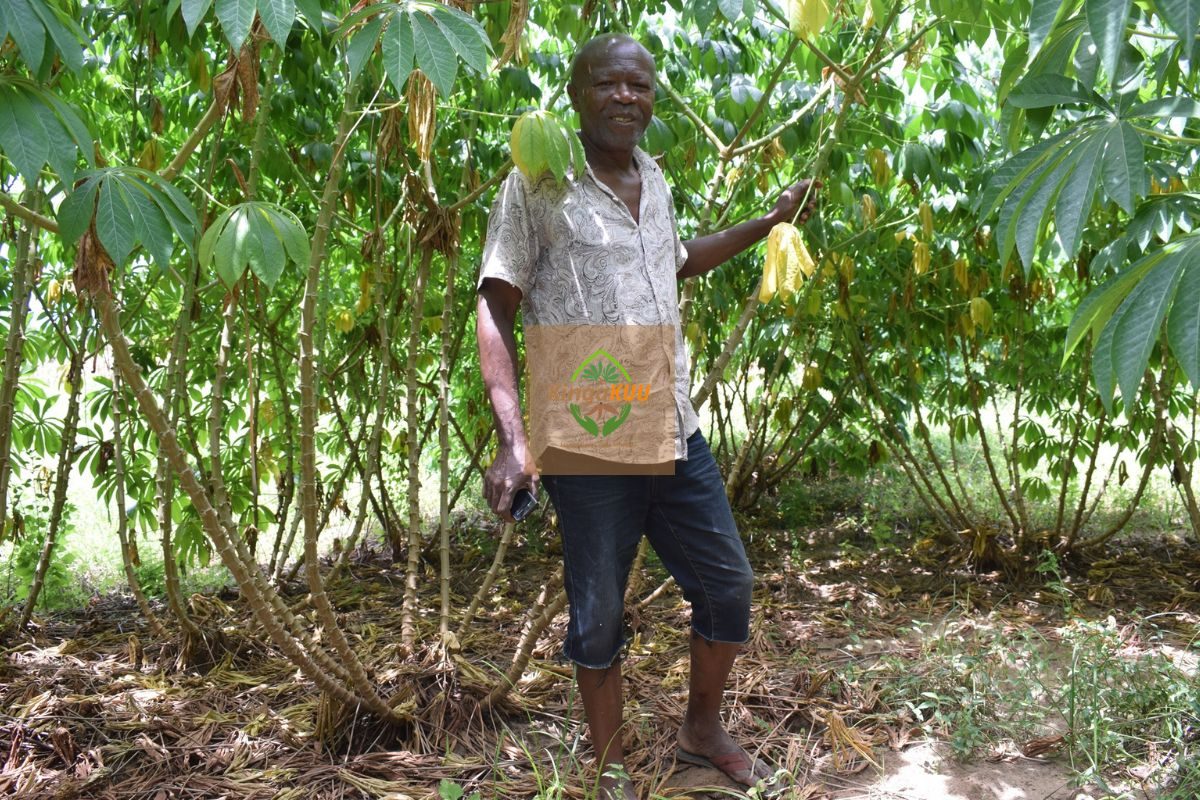Dwarfed by the canopy of his cassava farm, Lawrence a CSEs in Kilifi County, poses for a photo during a farm monitoring visit at his home. Lawrence joined the VIRCA project in October 2022 where he managed to receive training on improved and disease-resistant cassava seed varieties and the CSE model, Lawrence decided to invest in the model and planted three disease tolerant varieties (Karembo, Muceliceli, X-mariakani) that he received from KALRO Njoro, with seed transportation facilitated by VIRCA project.
The period that followed (Nov 2022-Feb 2023) was characterized by hot and dry weather conditions that almost wiped-out his Cassava seed farm. Through a matching agreement, VIRCA project sunk a borehole at his home, providing water for irrigation, an initiative that salvaged almost 50% of his farm. Lawrence plans to multiply enough certified seed from his salvaged 0.5 acres which he will then multiply and scale up to four acres to fully run a profitable cassava seed enterprise
“Traditionally, cassava is usually not prioritized in this region and is mostly planted on land left after all other crops are planted, this is due to poor yields, long maturity periods and pest and diseases infestation, however, through training from the VIRCA project and establishment of Demonstration plot in my farm, farmers in my community have visited the demo farm and are changing their perception about Cassava”
Lawrence has put into practice financial management skills, profit and loss calculation and other business skills he has received from VIRCA project which he says has helped him in running and starting other income activities in his farm.
“Since VIRCA training, I have been keeping proper records and managing my farm income well, I started to keep some savings which I recently used to buy a hybrid cow and start dairy farming”.


